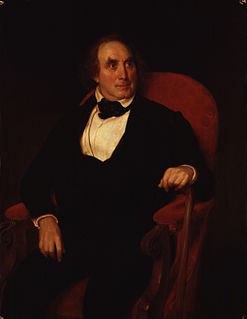A Quote by Edward Bulwer-Lytton, 1st Baron Lytton
Man hazards the condition and loses the virtues of a freeman, in proportion as he accustoms his thoughts to view without anguish or shame, his lapse into the bondage of debtor.
Related Quotes
The longest time that man may live,
The lapse of generations of his race,
The continent entire of time itself,
Bears not proportion to Eternity;
Huge as a fraction of a grain of dew
Co-measured with the broad, unbounded ocean!
There is the time of man--his proper time,
Looking at which this life is but a gust,
A puff of breath, that's scarcely felt ere gone!
The Christian religion is only for one who needs infinite help, therefore only for one who feels an infinite need. The whole planet cannot be in greater anguish than a single soul. The Christian faith - as I view it - is the refuge in this ultimate anguish. To whom it is given in this anguish to open his heart, instead of contracting it, accepts the means of salvation in his heart.
Every man, in proportion to his virtue, considers himself, with respect to the great community of mankind, as the steward and guardian of their interests in the property which he chances to possess. Every man, in proportion to his wisdom, sees the manner in which it is his duty to employ the resources which the consent of mankind has intrusted to his discretion.
When a man is stimulated by his own thoughts, full of desire and dwelling on what is attractive, his craving increases even more. He is making the fetter even stronger. But he who takes pleasure in stilling his thoughts, practising the contemplation of what is repulsive, and remaining recollected, now he will make an end of craving, he will snap the bonds of Mara. His aim is accomplished, he is without fear, rid of craving and without stain. He has removed the arrows of changing existence. This is his last body.
He who thinks much says but little in proportion to his thoughts. He selects that language which will convey his ideas in the most explicit and direct manner. He tries to compress as much thought as possible into a few words. On the contrary, the man who talks everlastingly and promiscuously, who seems to have an exhaustless magazine of sound, crowds so many words into his thoughts that he always obscures, and very frequently conceals them.
He was a foe without hate; a friend without treachery; a soldier without cruelty; a victor without oppression, and a victim without murmuring. He was a public officer without vices; a private citizen without wrong; a neighbor without reproach; a Christian without hypocrisy, and a man without guile. He was a Caesar, without his ambition; Frederick, without his tyranny; Napoleon, without his selfishness, and Washington, without his reward.
Nothing is so insufferable to man as to be completely at rest, without passions, without business, without diversion, without study. He then feels his nothingness, his forlornness, his insufficiency, his dependence, his weakness, his emptiness. There will immediately arise from the depth of his heart weariness, gloom, sadness, fretfulness, vexation, despair.
What is now happening to the people of the East as of the West is like what happens to every individual when he passes from childhood to adolescence and from youth to manhood. He loses what had hitherto guided his life and lives without direction, not having found a new standard suitable to his age, and so he invents all sorts of occupations, cares, distractions, and stupefactions to divert his attention from the misery and senselessness of his life. Such a condition may last a long time.
While dwelling with pleasing satisfaction upon the superior excellence of our political institutions, let us not be unmindful that liberty is power; that the nation blessed with the largest portion of liberty must in proportion to its numbers be the most powerful nation upon earth, and that the tenure of power by man is, in the moral purposes of his Creator, upon condition that it shall be exercised to ends of beneficence, to improve the condition of himself and his fellow men.





































